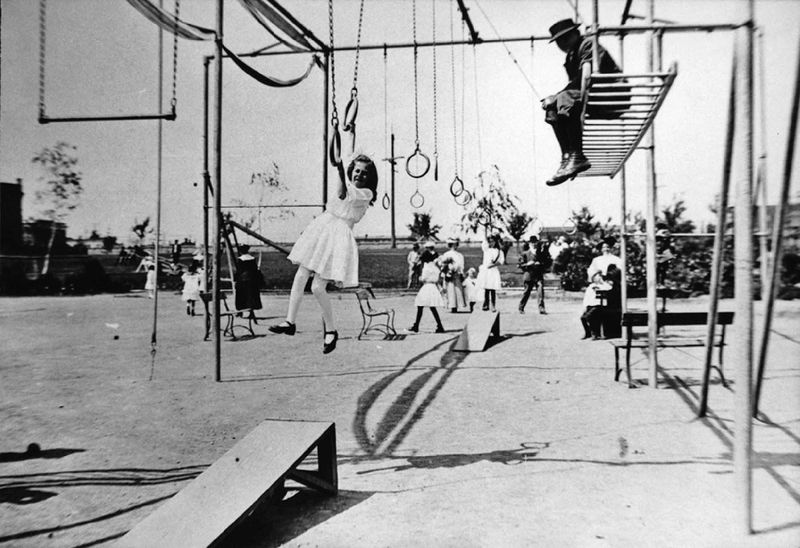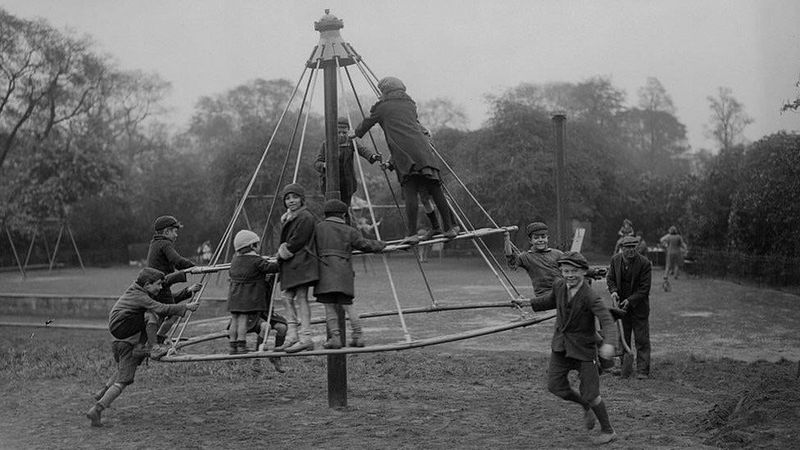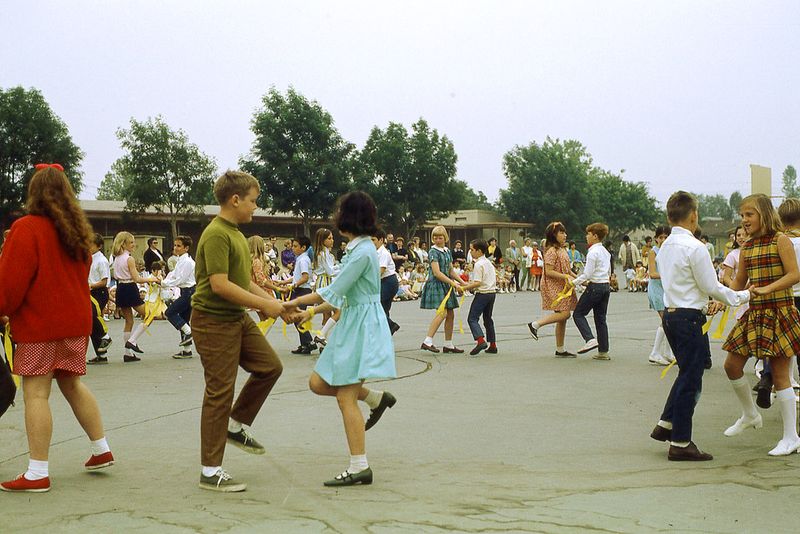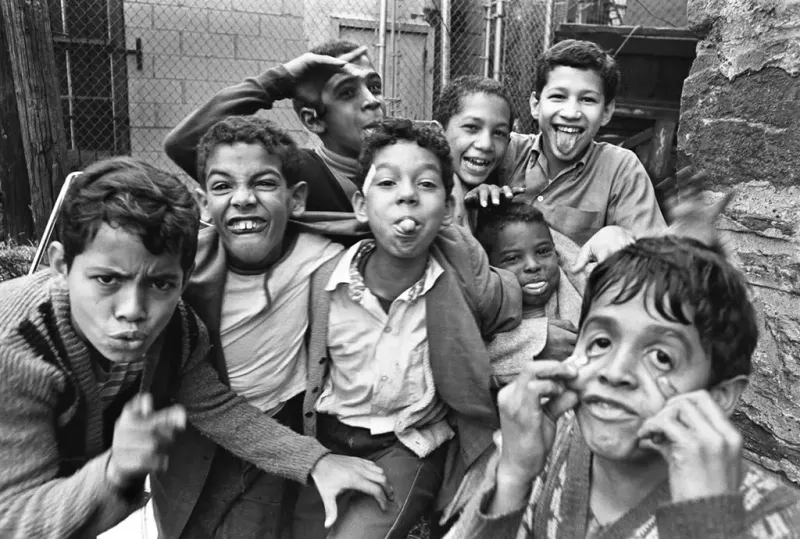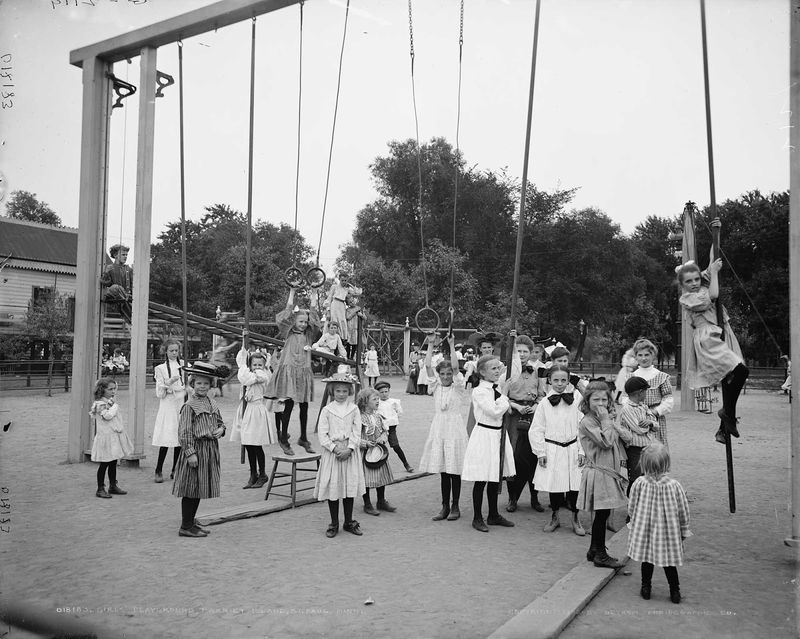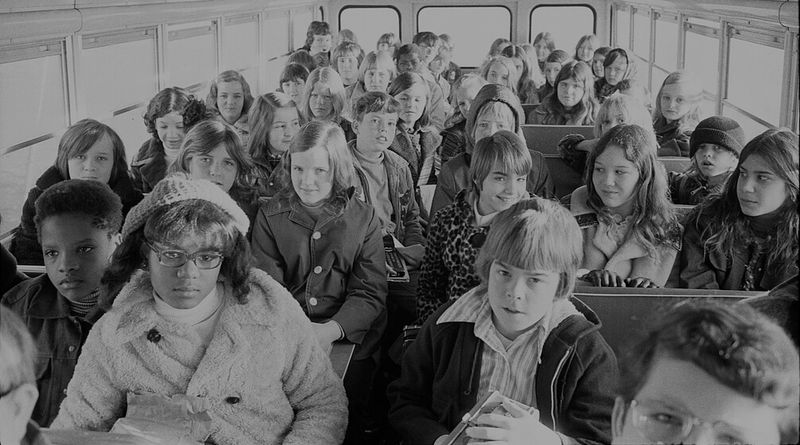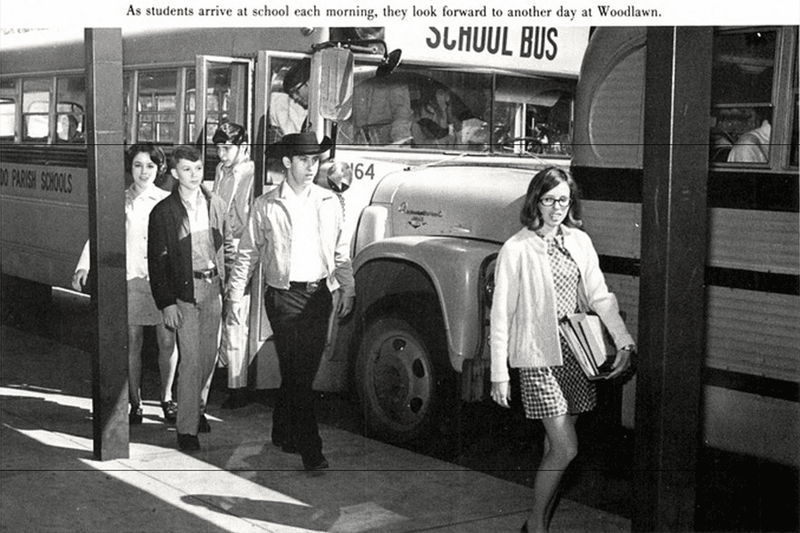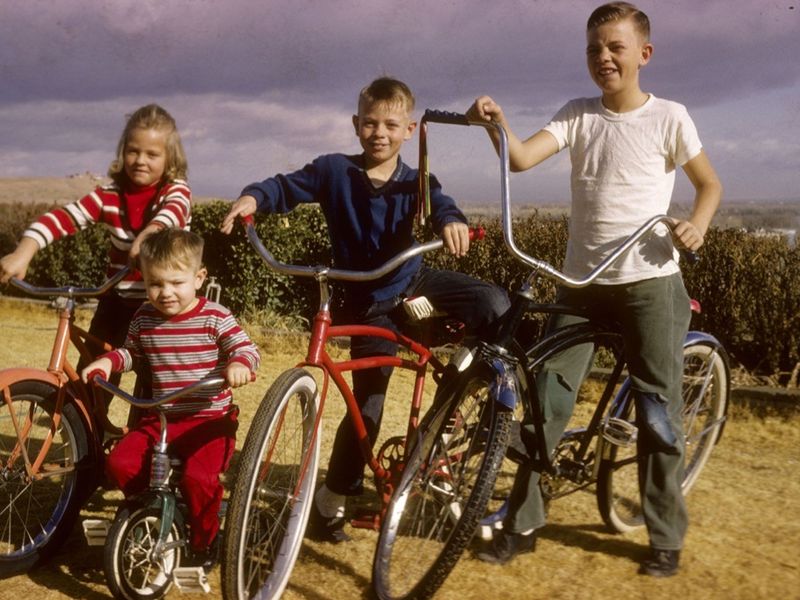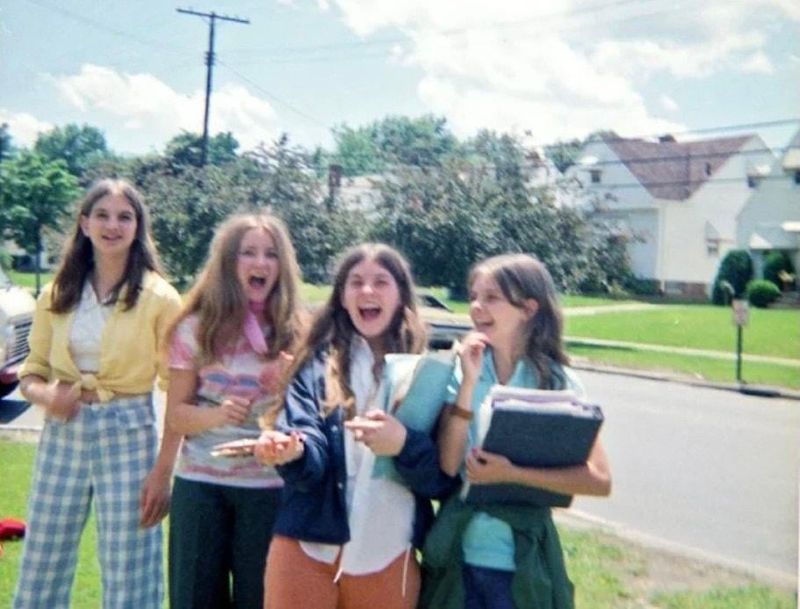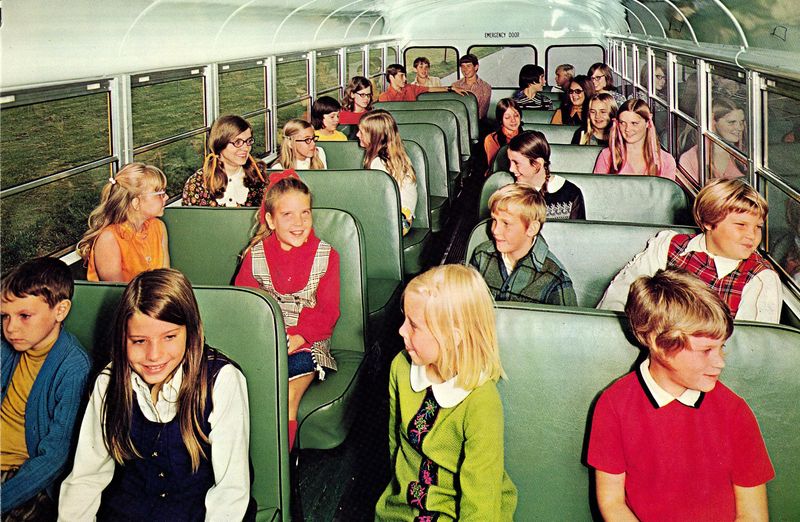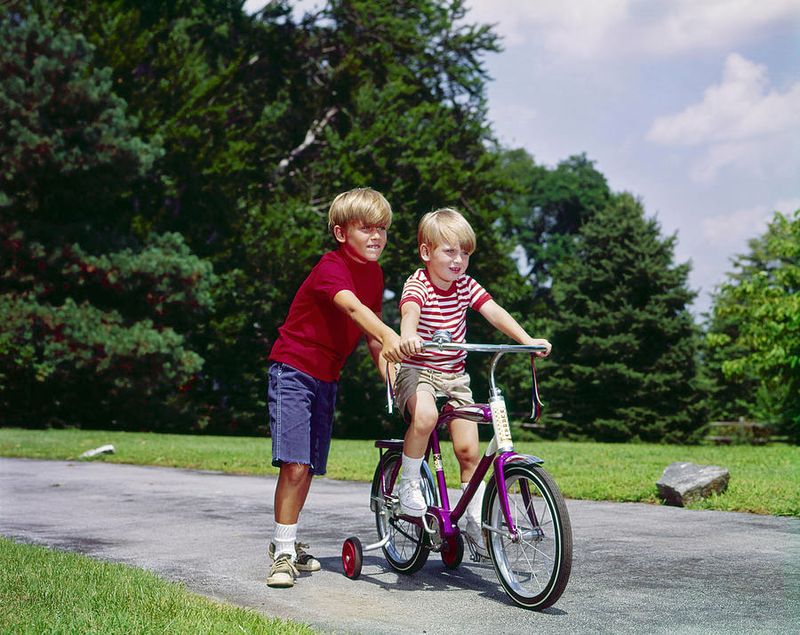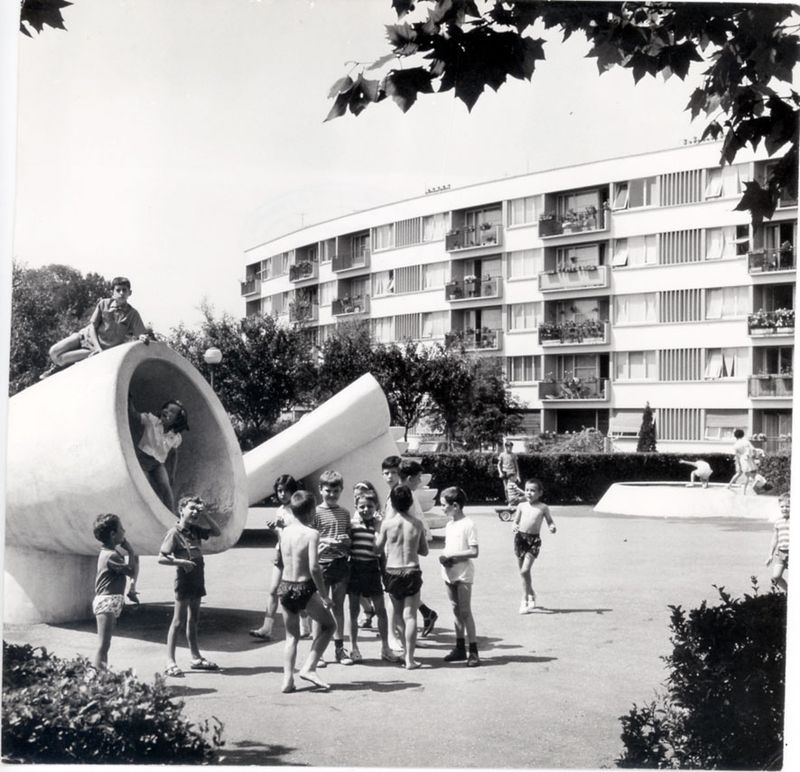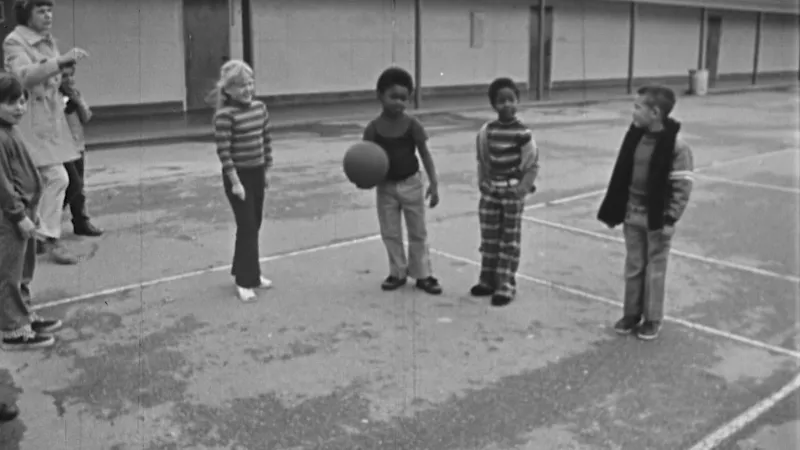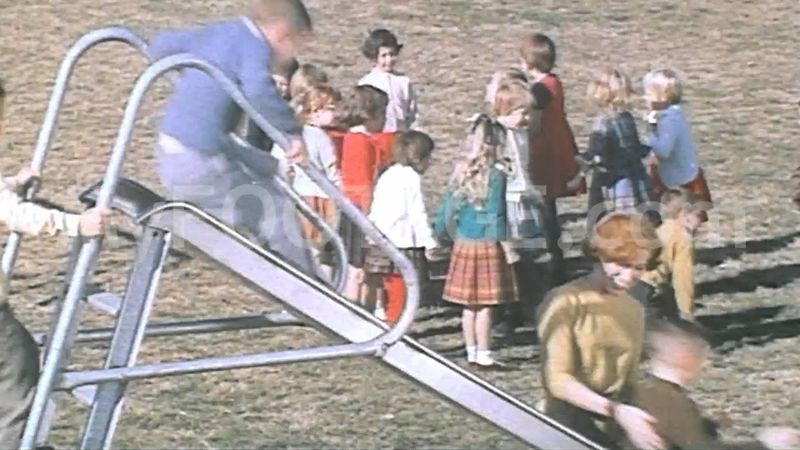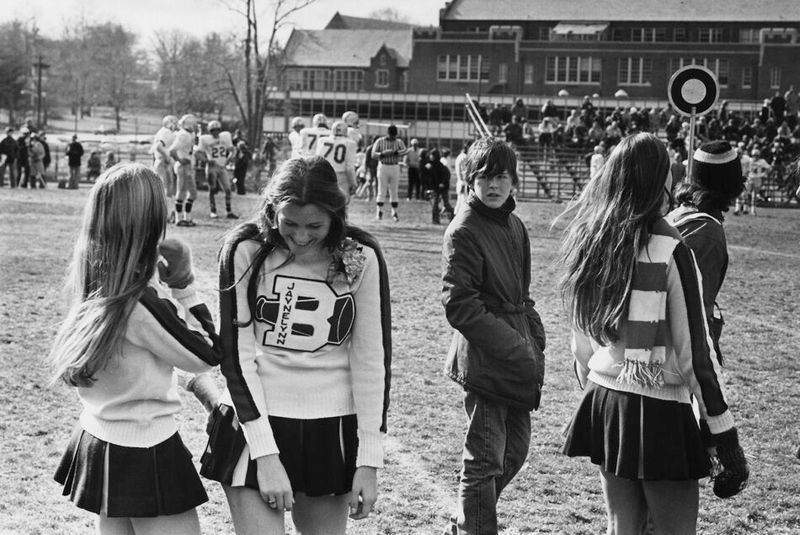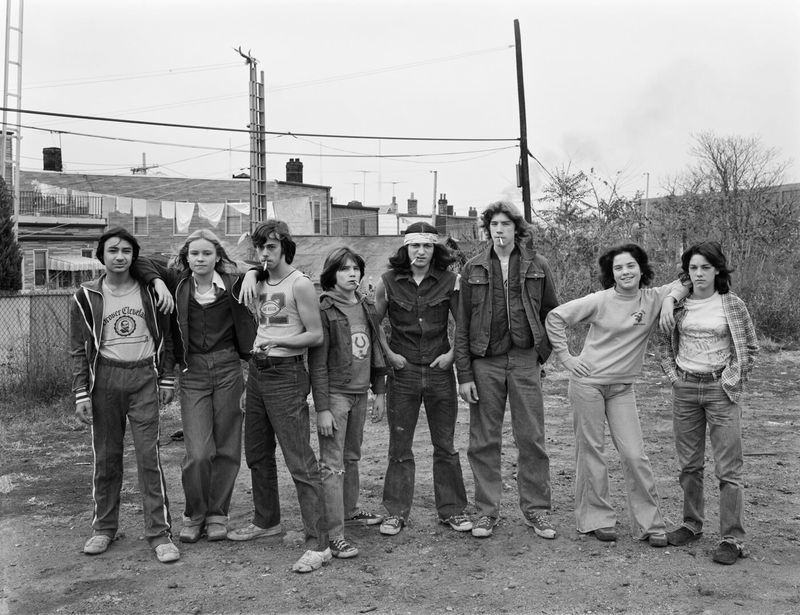Before smartphones and Snapchat, kids had the schoolyard—where words were weapons, defenses, dares, and declarations. If you grew up in the ’60s or ’70s, these classic phrases will hit you like a dodgeball to the face—in the best way.
1. “Liar, liar, pants on fire!”
The ultimate childhood call-out. Back then, it wasn’t a lie until someone yelled this—and maybe chased you with it. This phrase was the go-to accusation in any game or argument, often leading to a chorus of giggles or further disputes.
A favorite among friends, it was a playful yet pointed way to hold someone accountable. It came with a sense of drama, often amplified by wide eyes and mock outrage. Kids wielded it like a sword, slicing through tall tales and half-truths.
Its power lay in its simplicity and rhythmic taunt, making it unforgettable.
2. “I know you are, but what am I?”
A loop of logic that no one could ever win. The go-to phrase when your comeback game was running on fumes. It was the verbal equivalent of a mirror, reflecting insults back to the sender.
This simple retort held a certain magic, often leaving the original insulter momentarily speechless. Its repetitive nature added to its charm, making it both frustrating and endearing.
Easily remembered and often repeated, it was a staple of playground banter. This phrase was both a shield and a dart, capturing the playful spirit of childhood repartee.
3. “Take a chill pill!”
Used when someone was totally losing it—whether over homework or hopscotch. Cool it, man. This phrase was a call for calmness, often delivered with an exaggerated eye-roll or a dismissive wave.
In a time of wild energy and spontaneous games, it served as a reminder to take things down a notch. Its laid-back tone captured the essence of the era, where being cool was king.
With a catchy rhythm and easy delivery, it became a beloved part of the schoolyard lexicon. It was the voice of reason in a world of childhood chaos.
4. “Last one there’s a rotten egg!”
A race-starter, a challenge, and a mild insult all in one. There was always a “rotten egg.” This phrase ignited countless footraces, turning mundane walks into thrilling sprints.
In the heat of competition, it pushed kids to run faster and try harder, ensuring no one wanted the dubious honor of being last. Its playful nature masked the sting of being left behind.
The phrase was a catalyst for fun, transforming ordinary moments into opportunities for laughter and camaraderie. It was the heartbeat of schoolyard adventures, echoing with youthful enthusiasm.
5. “Psych!”
Said after pretending to give you something and yanking it away—or faking out your feelings. Delivered with a mischievous grin. This word was the ultimate fake-out, a perfect blend of trickery and humor.
It thrived on the element of surprise, catching friends off guard and leaving them in fits of laughter or feigned indignation. The abruptness of its delivery made it all the more effective.
In the playful world of childhood, ‘psych’ was a harmless prank, a way to keep friends on their toes. It was a testament to the lightheartedness of the era.
6. “Made you look!”
Accompanied by a finger point and triumphant laugh. If you glanced, you lost. This was a game of wits, testing the gullibility of friends in the most jovial manner.
The phrase was a simple yet effective ploy, often leading to playful accusations and a round of giggles. Its charm lay in its straightforwardness, a trick that never grew old.
”,’Made you look!’ was more than a phrase; it was an invitation to participate in the timeless dance of jest and camaraderie. It was childhood ingenuity at its best.
7. “Don’t be such a spaz.”
A clumsy insult that was everywhere in the ’70s. Totally uncool today, but part of the era’s awkward lexicon. It was a playful jab at friends who were being overly dramatic or clumsy.
Though its use has waned due to changing attitudes, it was once a common part of the schoolyard vocabulary. Its casual delivery often softened the blow, making it more of a tease than an insult.
The phrase serves as a cultural snapshot, reflecting the playful, if misguided, humor of the time. It was a relic of a more carefree era.
8. “Nanny nanny boo boo!”
A taunt for the ages. Usually followed by sticking out your tongue or running away fast. This sing-song phrase was the ultimate tease, light-hearted and slightly annoying.
Its repetitive sound and playful rhythm made it a favorite among schoolchildren looking to gently mock a friend. It was a way to get a rise out of someone without crossing the line.
Though seemingly nonsensical, ‘Nanny nanny boo boo!’ was a staple of youthful taunts, living on through generations as a playful expression of friendly rivalry.
9. “Your epidermis is showing!”
Every elementary jokester’s favorite fake-out. You panicked, then realized your epidermis is just your skin. This clever play on words offered a momentary confusion followed by a laugh.
It was a harmless trick, relying on the ignorance of peers to get a reaction. Once the joke was understood, it often became a shared laughter and a lesson in vocabulary.
The phrase was a testament to the creativity of children, who could turn a simple biology term into a tool for amusement. It was a blend of education and entertainment.
10. “Quit it or I’m telling!”
The classic tattletale threat. Used when someone was one more poke away from getting busted. This phrase was the alarm bell for impending adult intervention.
It carried the weight of authority, a verbal stop sign in the middle of playful chaos. For some, it was a bluff; for others, a sincere promise to seek justice.
Though it might have sparked irritation, it was a fundamental part of playground dynamics, teaching boundaries and the consequences of mischief. It was the voice of rightful indignation in the realm of fun.
11. “First the worst, second the best…”
An unscientific but widely accepted ranking system on the playground. Third? Supposedly had the hairy chest. This whimsical rhyme was an attempt to make sense of pecking orders in games and races.
Though it defied logic, it was embraced with the fervor of childhood, adding a layer of fun to any competition. Its sing-song cadence made it easy to remember and repeat.
The phrase was a blend of humor and hierarchy, a playful way to navigate victories and losses. It was part of the unspoken rules that governed playground interactions.
12. “Finders keepers, losers weepers.”
If you dropped it, tough luck. This phrase was the legal code of lost-and-found politics. It justified keeping any newfound treasure, much to the dismay of the original owner.
In the world of children, it was both a source of excitement and a cause for conflict. Its catchy rhyme offered a sense of fairness, despite its one-sided nature.
The phrase encapsulated the thrill of discovery and the sting of loss, often leading to negotiations and barters. It was the unwritten rule of ownership in the realm of childhood.
13. “I double-dog dare you.”
The escalation of all dares. If someone skipped straight to a triple-dog dare? Things were serious. This phrase was a badge of bravery, pushing children to new heights of daring.
Double-dog daring was the ultimate challenge, often leading to feats of courage or mischief. It held a sense of camaraderie, as peers watched with bated breath.
The phrase was a catalyst for adventure, inspiring boldness and testing limits. It was the spirit of childhood curiosity and the thrill of taking risks, wrapped in a playful yet serious package.
14. “He’s got cooties!”
Cooties were invisible, contagious, and mostly targeted at the opposite sex. Survival depended on a strong immune system—or a circle-circle-dot-dot shot. This childhood myth added a layer of drama to interactions.
The concept of cooties created a playful rivalry, serving as both a tease and a game. It was a way to navigate friendships and flirtations with humor.
Though completely imaginary, cooties were a staple of schoolyard lore, fostering creativity in defense mechanisms. It was a shared experience, binding children in a world of make-believe.
15. “No backsies!”
A binding clause in any trade deal. Once you said it, the deal was sealed in playground law. This phrase was a safeguard against regret, ensuring trades were final and undisputed.
In the world of swapping snacks or toys, ‘no backsies’ was crucial, preventing any second thoughts. It was a declaration of commitment, often respected among peers.
The phrase added a layer of excitement to exchanges, making each trade a moment of suspense. It was a testament to the unwritten codes that governed childhood interactions, adding structure to spontaneity.
16. “Yo mama…”
The beginning of countless schoolyard burns. Some were funny, some were mean, but all were guaranteed to stir up drama. These jokes were a test of wit and humor, challenging kids to come up with clever comebacks.
‘Yo mama’ jokes were both a source of laughter and potential conflict, walking the line between teasing and offense. They required creativity and timing, often becoming a playground spectacle.
The phrase was a gateway to a world of verbal sparring, showcasing the playful yet competitive nature of childhood. It was a dance of words, blending humor with a hint of rivalry.

